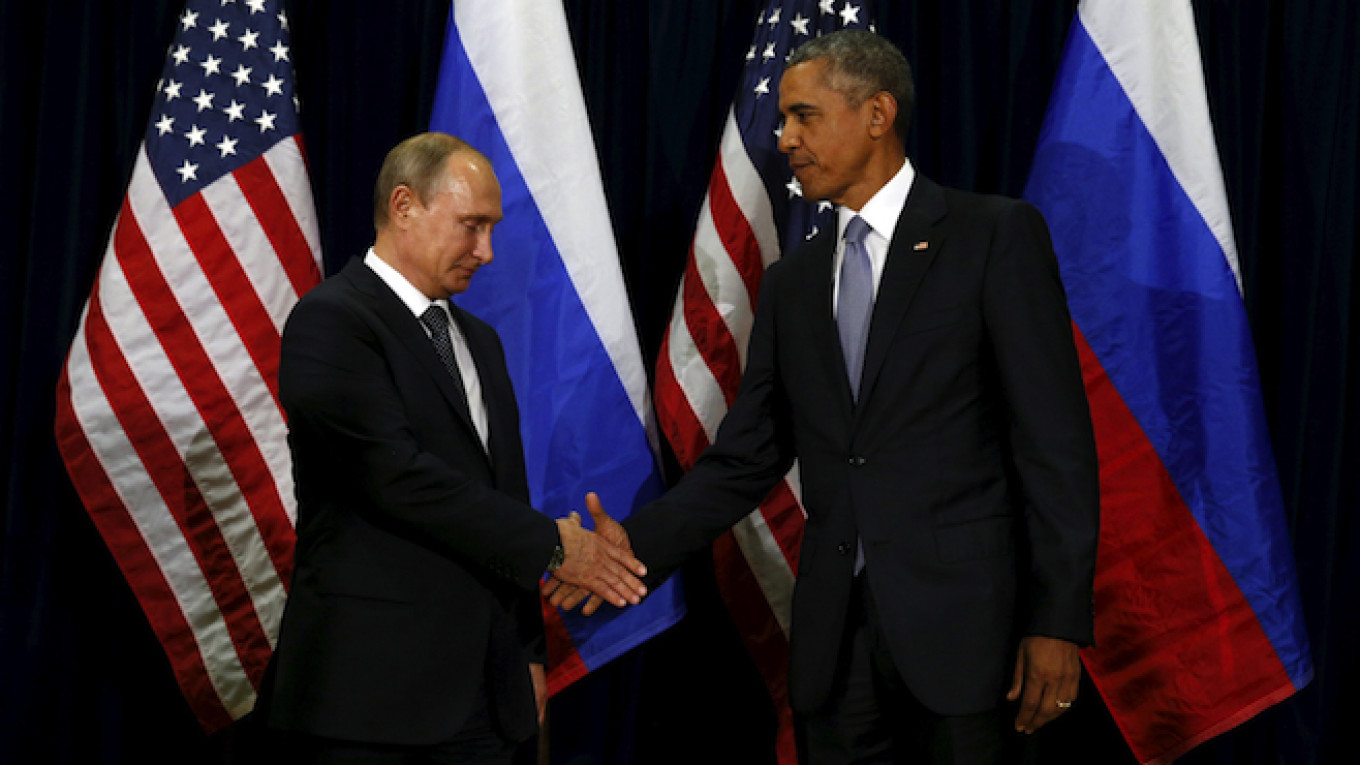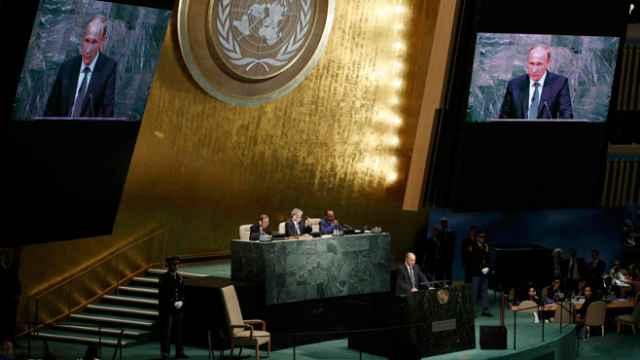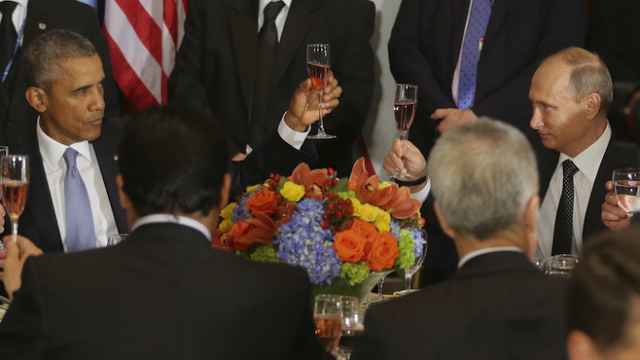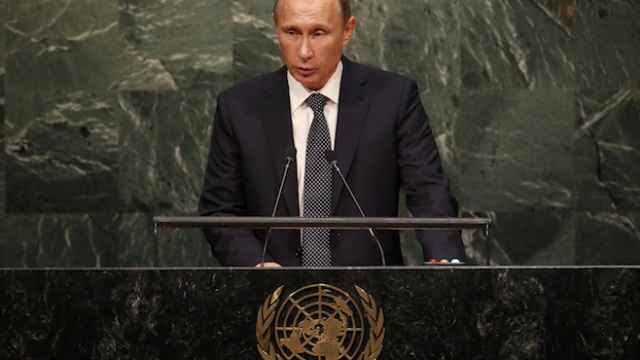As political gatherings go, the annual assembly of world leaders at the United Nations in New York is about as high-octane as they get, and this year's meeting has been hotly anticipated.
The opening hours of the meeting known officially and equivocally as the "general debate" saw appearances by Chinese President Xi Jinping, U.S. President Barack Obama and Russian President Vladimir Putin.
Hours before the speeches began, the UN press corps and visiting media pools from around the world lined up to wait for "tickets" — paper cards stamped with the date and time — that allowed access to the General Assembly's media gallery.
"I can't even get my own pool in," a Kremlin official who led Russian journalists on a trip to New York griped, as his group waited — and waited some more.
If last year's gathering — which featured a Climate Change summit and an appearance by Obama — was hectic, "this year is busier, and crazier," a UN employee said, asking not to be identified by name.
The highly charged atmosphere culminated in pointed speeches from the presidents of the United States and Russia, directed at the global audience.
"We see some major powers assert themselves in ways that contravene international law," Obama told the assembly and international media. He did not directly name Russia, but denounced supporters of Syria's Bashar Assad, Moscow's main Arab ally — "a dictator [who] slaughters tens of thousands of his own people."
"The United States is prepared to work with any nation, including Russia and Iran, to resolve the conflict [in Syria]," Obama added.
At these words, Russia's Foreign Minister Sergei Lavrov, seated in the audience with his country's delegation, shook his head in a show of disagreement or disbelief. Moscow seeks to assert itself as the leader in resolving the Syrian crisis and resents the role undertaken by the United States.
Obama also singled out Moscow's annexation of Crimea and "further aggression" in eastern Ukraine as examples of various "challenges" around the world.
"Now, within Russia, state-controlled media may describe these events as an example of a resurgent Russia," Obama said. "And yet, look at the results. The Ukrainian people are more interested than ever in aligning with Europe instead of Russia. Sanctions have led to capital flight, a contracting economy, a fallen ruble, and the emigration of more educated Russians."
Taking the podium a couple of hours later, Putin came back at the United States, denouncing the "export of revolutions, this time so-called democratic ones."
"Suffice it to look at the situation in the Middle East and North Africa," Putin said. "I cannot help asking those who have caused this situation: do you realize now what you have done? But I am afraid no one is going to answer that. Indeed, policies based on self-conceit, and belief in one's exceptionality and impunity have never been abandoned."
The Ukrainian delegation walked out during Putin's speech, while Ukrainian activists rallied outside the UN headquarters on Monday morning, demanding that Russian forces pull out of Crimea and of eastern Ukraine, where Moscow-backed separatists are fighting Kiev government troops.
Another group of protesters, Iranian in this case, gathered nearby to denounce human rights violations under Iranian President Hassan Rouhani — who also addressed the UN General Assembly on Monday.
Despite the heated atmosphere and pointed words, this year's General Assembly has, thus far, been positively tame when compared to highlights from bygone eras.
Russia media may have complained about the length of Obama's speech, but Cuban leader Fidel Castro in 1960 delivered a speech to the UN General Assembly that ran over four hours. That same year, Soviet leader Nikita Khrushchev famously pounded his shoe on the table in indignation during a General Assembly debate.
Venezuelan President Hugo Chavez described U.S. President George W. Bush as "the devil" in his 2006 address, and former Iranian President Mahmoud Ahmadinejad's 2010 address included accusations that the U.S. government orchestrated the 9/11 terrorist attacks.
A Message from The Moscow Times:
Dear readers,
We are facing unprecedented challenges. Russia's Prosecutor General's Office has designated The Moscow Times as an "undesirable" organization, criminalizing our work and putting our staff at risk of prosecution. This follows our earlier unjust labeling as a "foreign agent."
These actions are direct attempts to silence independent journalism in Russia. The authorities claim our work "discredits the decisions of the Russian leadership." We see things differently: we strive to provide accurate, unbiased reporting on Russia.
We, the journalists of The Moscow Times, refuse to be silenced. But to continue our work, we need your help.
Your support, no matter how small, makes a world of difference. If you can, please support us monthly starting from just $2. It's quick to set up, and every contribution makes a significant impact.
By supporting The Moscow Times, you're defending open, independent journalism in the face of repression. Thank you for standing with us.
Remind me later.






